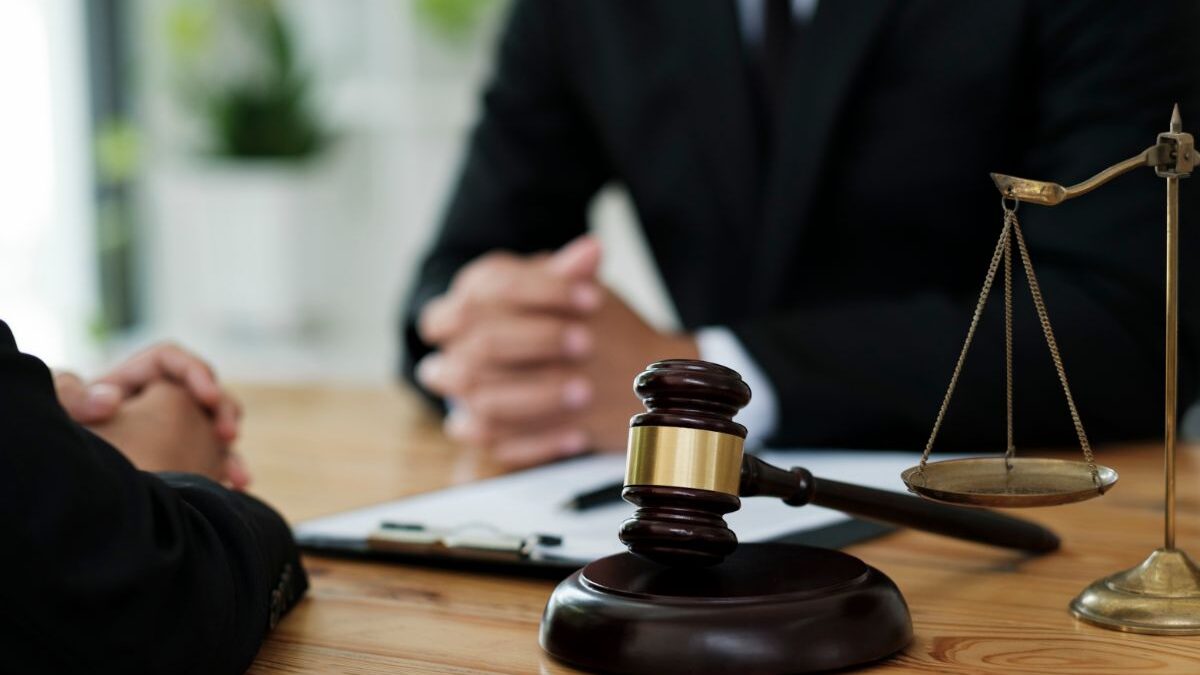
Trends in the Divorce Rate in Maryland Over the Past 20 Years
February 22, 2024
Understanding Nesting in Child Custody Cases in Maryland
March 1, 2024In Maryland family law cases, depositions play a crucial role in gathering information and building a strong legal strategy.
A deposition is a formal statement given under oath by a witness or party involved in the case in response to questions posed by one of the attorneys in the case. It serves as a valuable tool during the discovery process, allowing attorneys to collect relevant facts and testimony.
In this comprehensive guide, we will explore the ins and outs of depositions in Maryland family law cases, including their purpose, procedures, and benefits.
Table of Contents:
- Introduction to Depositions
- Understanding the Deposition Process
- Written Depositions vs. Oral Depositions
- The Role of Depositions in Maryland Divorce Proceedings
- Benefits of Depositions in Divorce Cases
- Knowing When to Take Depositions
- Important Questions in a Divorce Deposition
- Preparing for a Divorce Deposition
- Tips for a Successful Deposition Experience
- Legal Considerations in Depositions
- The Importance of Accuracy in Deposition Testimony
- Conclusion
1. Introduction to Depositions
A deposition is a formal procedure conducted outside of the courtroom, where a witness or party involved in a legal case provides sworn testimony.
This testimony is recorded by a court reporter and can be used as evidence during the trial or settlement negotiations. In Maryland family law cases, depositions are a crucial part of the discovery process, allowing attorneys to gather information, assess credibility, and evaluate the strength of the case.
2. Understanding the Deposition Process
The deposition process typically involves the following key participants: the deponent (the person providing testimony), the attorneys representing each party, and a court reporter responsible for transcribing the proceedings. The deposition takes place in a controlled setting, usually in the office of one of the attorneys involved.
During the deposition, the deponent is placed under oath and must answer questions truthfully. Family law attorneys have the opportunity to ask questions relevant to the case, and the deponent's responses are recorded verbatim. The court reporter creates a transcript of the deposition, which can be later used as evidence in court.
3. Written Depositions vs. Oral Depositions
In Maryland, depositions can be conducted using either written or oral formats.
- Written depositions are less common and involve submitting written questions to the deponent, who then provides written responses.
- Oral depositions, on the other hand, are more widely used and involve attorneys asking questions directly to the deponent, with their responses being recorded by the court reporter.
While written depositions may be suitable for certain situations, oral depositions allow for real-time interaction between the attorneys and the deponent, allowing for follow-up questions and a more thorough exploration of the issues at hand.
4. The Role of Depositions in Maryland Divorce Proceedings
In Maryland divorce proceedings, depositions can be a valuable tool for gathering information, assessing credibility, and building a strong legal strategy. Depositions allow attorneys to question both the opposing party and other witnesses under oath, ensuring that all relevant facts and details are uncovered.
Depositions in divorce cases typically cover a wide range of topics, including the reasons for the divorce, alimony, child support, custody, division of assets, employment, and any other issues pertinent to the case. By obtaining sworn testimony during depositions, attorneys can uncover crucial details that may impact the outcome of the divorce proceedings.
5. Benefits of Depositions in Divorce Cases
Depositions offer several benefits in divorce cases. Firstly, they provide an opportunity to assess the credibility of the opposing party and witnesses.
By observing their demeanor, body language, and consistency of their answers, attorneys can evaluate the strength of their testimony and identify potential weaknesses.
Secondly, depositions allow attorneys to gather information that may not be readily available through other means of discovery. Witnesses may reveal facts or provide insights that were previously unknown, providing a more complete picture of the case.
Additionally, depositions can be used as leverage during settlement negotiations. If a deponent's testimony contradicts their later statements or trial testimony, the deposition transcript can be used to challenge their credibility and strengthen your position during negotiations.
6. Knowing When to Take Depositions
Determining when to take depositions in a Maryland family law case requires careful consideration. While depositions can be a powerful tool, they also involve time and cost. It is essential to weigh the potential benefits against the resources required.
Attorneys typically recommend taking depositions when:
- Significant factual discrepancies exist between the parties' accounts of events.
- The opposing party or witnesses have a history of dishonesty or perjury.
- Complex financial matters or hidden assets are involved.
- Child custody or support issues are disputed.
- The opposing party is uncooperative or unwilling to provide necessary information.
Ultimately, the decision to take depositions should be based on the unique circumstances of each case and the strategic goals of the client.
Baumohl Hamburg: Your Family. Your Rights. Our Priority.
Trusted Family Law Representation in Maryland
7. Important Questions in a Divorce Deposition
During a divorce deposition, attorneys ask a wide range of questions to gather information and build their case. The specific questions asked will depend on the facts and issues involved in each case.
However, some common topics covered in divorce depositions include:
- Reasons for the divorce
- Alimony and spousal support
- Child custody and visitation arrangements
- Child support calculations
- Division of marital assets and debts
- Employment history and income
- Substance abuse or addiction issues
- Domestic violence or abuse allegations
By thoroughly exploring these topics, attorneys can gather the necessary information to present a compelling case on behalf of their client.
8. Preparing for a Divorce Deposition
Preparation is key to a successful deposition experience. If you are the deponent, your attorney will guide you through the process and help you prepare for the questions you may face. Here are some essential tips for preparing for a divorce deposition:
- Consult with your attorney: Your attorney will provide guidance on what to expect during the deposition and help you understand the relevant legal issues.
- Review your case: Familiarize yourself with the details of your case, including important dates, financial documents, and any relevant evidence.
- Practice answering questions: Work with your attorney to practice answering potential deposition questions. This can help you feel more comfortable and confident during the actual deposition.
- Stay calm and composed: Depositions can be a stressful experience, but it is essential to remain calm and composed. Take breaks when needed and remember to breathe.
- Dress appropriately: Dress professionally for the deposition to convey a serious and respectful demeanor.
By adequately preparing for the deposition, you can ensure that you are ready to provide accurate and concise answers to the questions posed by the opposing party's attorney.
9. Tips for a Successful Deposition Experience
To make the most of your deposition experience, consider the following tips:
- Listen carefully: Pay close attention to each question asked, ensuring you fully understand before answering. Take a brief pause before responding to gather your thoughts.
- Be honest and truthful: Depositions are conducted under oath, and perjury is a serious offense. Answer all questions truthfully, to the best of your knowledge.
- Keep your answers concise: Answer only what is asked and avoid providing unnecessary information. Stick to the facts and avoid speculation or assumptions.
- Avoid volunteering information: Answer the questions asked, but refrain from volunteering additional information unless specifically requested.
- Seek clarification if needed: If a question is unclear or ambiguous, ask for clarification before providing an answer. It is crucial to fully understand the question before responding.
- Be aware of body language: Maintain good eye contact, sit up straight, and project confidence. Non-verbal cues can convey credibility and impact how your testimony is perceived.
- Stay calm and composed: It is natural to feel nervous during a deposition, but try to remain calm and composed. Take your time, and do not let the opposing attorney rush you.
- Consult with your attorney if necessary: If you feel uncomfortable with a particular question or need clarification, you may have the right to consult with your attorney before answering.
By following these tips, you can navigate the deposition process with confidence and ensure that your testimony is clear, accurate, and compelling.
10. Legal Considerations in Depositions
During a deposition, attorneys may object to certain questions or lines of questioning. It is essential to be aware of these objections and understand their implications. Common objections include:
- Relevance: An attorney may object if they believe a question is not relevant to the case at hand.
- Privilege: Certain communications, such as attorney-client privilege, may be protected and not subject to disclosure during a deposition.
- Form of the question: If a question is unclear, compound, or misleading, an objection may be raised regarding its form.
- Harassment or badgering: If an attorney's questioning becomes repetitive, argumentative, or harassing, an objection may be made.
If an objection is raised, pause and allow your attorney to address it before answering the question. Your attorney will guide you on how to proceed, ensuring that your rights are protected throughout the deposition.
11. The Importance of Accuracy in Deposition Testimony
Accuracy is paramount in deposition testimony. Providing false or misleading information can have severe consequences, including potential perjury charges and damage to your credibility. It is crucial to take the time to reflect on each question before answering and to provide truthful and accurate responses.
If you do not know the answer to a question or cannot recall a specific detail, it is acceptable to say, "I don't know" or "I don't recall." Guessing or speculating can undermine your credibility and weaken your case.
Remember, the deposition transcript can be used as evidence in court, so it is essential to be diligent and honest in your responses.
12. Conclusion
Depositions are a vital component of Maryland family law cases, allowing attorneys to gather information, assess credibility, and build a strong legal strategy. By understanding the deposition process and preparing effectively, you can navigate the experience with confidence and ensure that your testimony is clear, accurate, and compelling.
If you are facing a family law case in Maryland, it is crucial to consult with an experienced family law attorney who can guide you through the deposition process and protect your rights. They can help you prepare for the deposition, advise you on the best strategies, and advocate for your best interests.
Remember, the deposition is just one step in the legal process, and with the right legal representation, you can navigate your family law case successfully and achieve a favorable outcome.
Disclaimer: The information provided in this article is for informational purposes only and should not be construed as legal advice. It is always recommended to consult with a qualified attorney for personalized guidance and representation in legal matters.
About the Author
 Harry Baumohl is a distinguished family law practitioner based in Pikesville, Maryland. With over forty years of experience, Harry specializes in navigating complex family law issues such as divorce, child custody, and high net worth divorce litigation. His practice is well-regarded for its expertise in handling cases involving significant family income, net worth, and intricate asset divisions. Harry is adept at resolving high-conflict parenting disputes and is a proponent of prenuptial agreements, mediation, and collaborative family law as effective tools for planning and dispute resolution.
Harry Baumohl is a distinguished family law practitioner based in Pikesville, Maryland. With over forty years of experience, Harry specializes in navigating complex family law issues such as divorce, child custody, and high net worth divorce litigation. His practice is well-regarded for its expertise in handling cases involving significant family income, net worth, and intricate asset divisions. Harry is adept at resolving high-conflict parenting disputes and is a proponent of prenuptial agreements, mediation, and collaborative family law as effective tools for planning and dispute resolution.
Known for his unparalleled track record and deep understanding of family law dynamics, Harry provides his clients with steady, thoughtful representation. His approach is characterized by a unique philosophy and temperament that cater to individual needs during challenging times.
As a founder of Baumohl Hamburg LLC, located conveniently off the Baltimore Beltway in Baltimore County, Harry has significantly represented clients across various jurisdictions, including Baltimore County, Baltimore City, Carroll County, Harford County, Howard County, and Anne Arundel County. Harry Baumohl's commitment to excellence and his client-focused approach make him one of Maryland’s leading family law practitioners.




